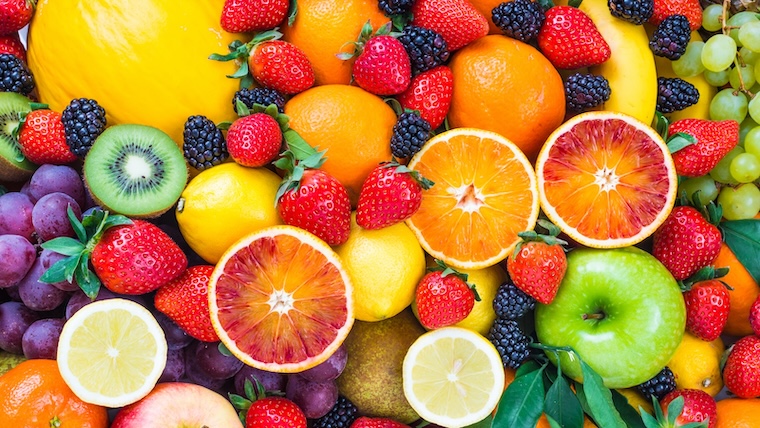Fructose is a naturally occurring simple sugar found in many fruits and plant-based sources like sugarcane, vegetables, sugar beets, and honey. Known for its intense sweetness, fructose is often used as a sweetener to enhance the flavor of foods and beverages. A typical example is soda, which has been central to many debates regarding fructose consumption.
Does fructose have downsides or potential health risks? Dr. Layne Norton, PhD in Nutritional Sciences, weighed in on this contentious topic.
[Related: Creatine Monohydrate vs. Hydrochloride — What’s the Difference?]
The Most Threatening Sugar: Glucose vs. Fructose
Dr. Norton highlights comments made by Dr. David Perlmutter, author of Grain Brain, about the risks of fructose during a podcast discussion. According to Perlmutter, fructose threatens our health more than glucose, explaining the following, which Dr. Norton then debunks:
- Glucose and fructose differ significantly at a molecular level, particularly in their carbon atom structures.
- Unlike glucose, fructose doesn’t rely on insulin to metabolize.
- Fructose is rapidly converted into uric acid, which can disrupt metabolic health.
- While glucose is absorbed and utilized as fuel, fructose can act as a mitochondrial toxin.
Glucose & Fructose Molecules
Fructose differs from glucose due to its five-carbon ring structure (compared to glucose’s six-carbon ring); both share the same chemical formula: C6H12O6. Glucose can pass through the liver, where a portion is temporarily processed before being released into the bloodstream for use by peripheral tissues.
In contrast, fructose is metabolized almost entirely by the liver. The liver converts fructose into glycogen, which can later be released to supply energy to other tissues. Essentially, the liver plays a central role in fructose metabolism.
Fructose & Uric Acid
Fructose can be converted into uric acid; Dr. Norton disputes Dr. Perlmutter’s claim that this conversion happens immediately. “That’s not how that works,” Norton declared, explaining that while a portion of fructose is converted into uric acid, the amount is insignificant — it’s neither all, most, nor even the majority. Norton supports this claim with a study examining body fat and insulin sensitivity. (1)

When fructose intake is swapped one-to-one with other carbohydrates or sugars, no notable negative metabolic effects are observed. However, if fructose consumption occurs as part of an excessive calorie intake, it can lead to adverse outcomes. Studies that consistently control calorie intake and replace fructose with other sugars in equal amounts show no harmful effects.
Fructose as a Mitochondrial Toxin
Regarding fructose as a mitochondrial toxin, it leads people to mistakenly believe that fruit is harmful, even labeling it as a poison. If fructose were indeed a mitochondrial toxin, there would need to be an explanation for why the fructose found in fruit — chemically identical to the fructose in soda — doesn’t have the same toxic effect.
Fruit is packed with micronutrients, vitamins, and minerals. On average, individuals who consume more fruit tend to be metabolically healthier.
Some individuals focus on biochemistry and metabolic pathways to appear knowledgeable while overlooking the real-world human outcome data that truly matters.
“Just because a mechanism exists doesn’t mean it will cause an outcome,” Norton explained. “If there’s an outcome, there’s absolutely a mechanism, but just because a mechanism exists doesn’t mean you have an outcome.”
Norton described outcomes as the result of countless biochemical pathways and mechanisms working together — sometimes dozens, hundreds, or even thousands — converging to create a final result. Therefore, prioritize outcomes rather than the individual mechanisms behind them.
More In Research
- Develop These 5 Habits for a Leaner Physique
- Does Resistance Training Improve Academic Performance?
- Is Ego Lifting Actually Bad?
Reference
- Fattore, E., Botta, F., & Bosetti, C. (2021). Effect of fructose instead of glucose or sucrose on cardiometabolic markers: a systematic review and meta-analysis of isoenergetic intervention trials. Nutrition reviews, 79(2), 209–226. https://doi.org/10.1093/nutrit/nuaa077
Featured image via Shutterstock/lenori